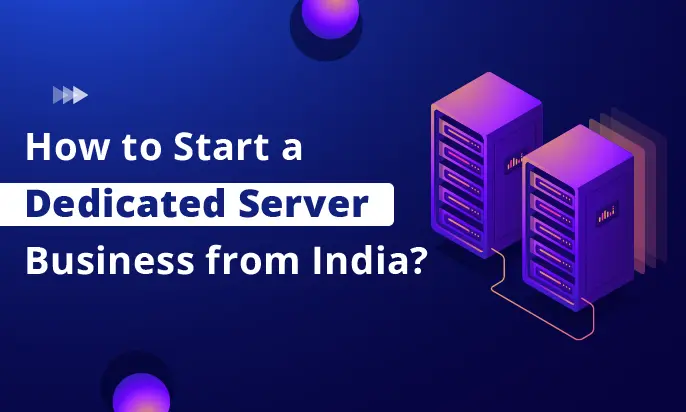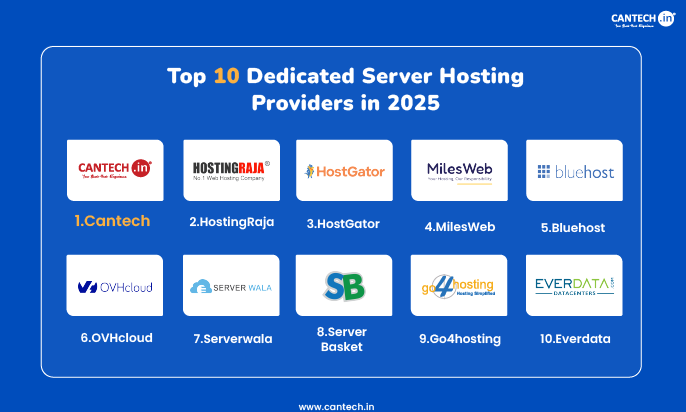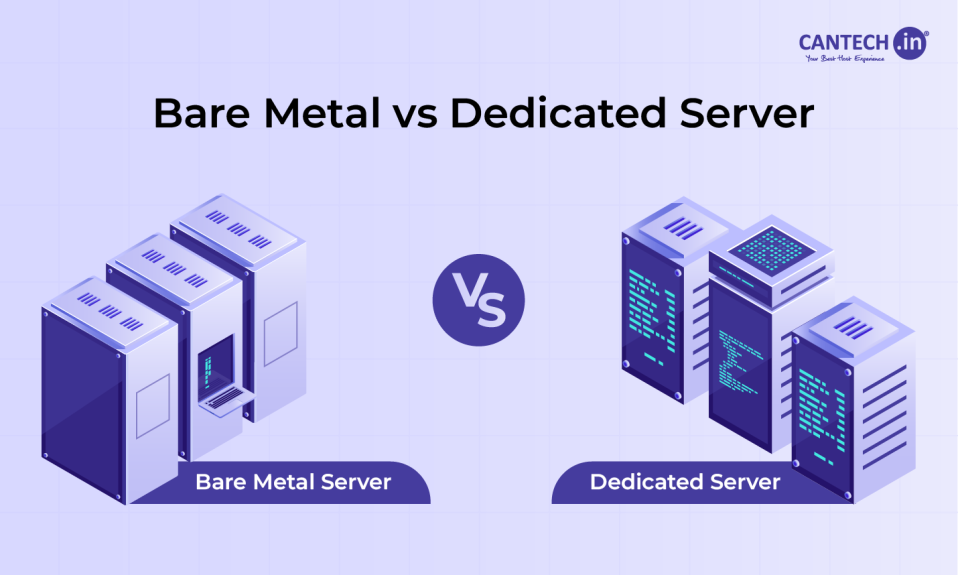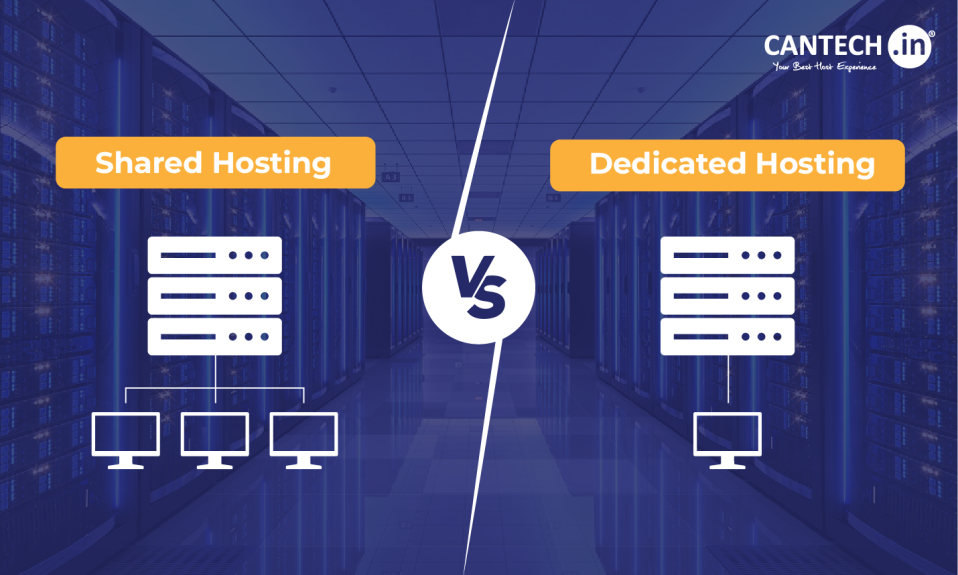Introduction
Have you ever dreamt of becoming a pioneer in the thriving world of web hosting, catering to the diverse needs of businesses worldwide? Starting a dedicated server business from India can be a rewarding venture, offering unparalleled opportunities for growth and success in the digital landscape. In this comprehensive guide, we embark on a journey to unravel the intricacies of launching a business of dedicated server in India, exploring the essential steps, challenges, and strategies for building a thriving hosting enterprise.
What is a Dedicated Server?
It is important to understand dedicated servers and other server types when planning to start a server business in India with web hosting solutions.
So, what is a dedicated server offering? – all physical server resources like CPU, RAM, and bandwidth are offered exclusively to one user with complete isolation and full control over the server’s configuration. Thus, it is a preferred server for businesses that have high-traffic or complex websites or require substantial resources and custom security settings. It is also an ideal solution for scalable server leasing for businesses.
The primary benefits of a dedicated server are the best performance, 24/7 high uptime, faster loading speeds, and advanced security. It also offers dedicated server resources’ complete access for CPU, RAM, and storage and can also tailor the server’s settings to meet specific needs.
An India dedicated server is highly versatile. It can be used for various purposes such as hosting websites, game servers, or other applications that need robust performance and reliable access.
Learn more: What is Dedicated Hosting?
Understand Dedicated Servers and How Do They Work
So, what is a dedicated server part of the working? A dedicated server is a high-performance computer machine. A business server hosting leases it for its dedicated website or app use. So, in your dedicated server rental business, you give access to the server’s complete set of resources as per your pricing plan features. Dedicated server users do not share them with other users. This setup provides significant advantages in terms of both performance and flexibility.
Now, how do dedicated servers work? Well, dedicated servers are accommodated within a hosting provider’s data center. This data center has advanced network infrastructure to facilitate constant connectivity and security.
Further, the question is how to start hosting. Well, when you start a dedicated server business, you provide it fully on lease to host a site or app. That is, you offer custom plans for the entire physical machine and its associated resources like internet bandwidth, power, cooling, and physical security.
The user will have full administrative control over the server to configure its hardware and software settings to meet specific needs. Also, they can control access privileges, manage open ports, and decide which services and programming environments are allowed.
This level of control with business server rentals is beneficial for businesses that require a tailored hosting environment or have specialized technical needs.
Learn more: Why You Need Dedicated Server?
Benefits of Dedicated Server in Becoming the Preferred Choice for Businesses
When looking to start a server business, you need to focus on your offerings and expectations of dedicated server India users. In other words, what benefits of dedicated server will enhance the user’s website, app, and/or business? You make the dedicated server a preferred choice for businesses read about its essential benefits and features below:
- Dedicated Resources & Performance
The business server rentals with dedicated hosting will allot all server resources (CPU, RAM, storage, and bandwidth) to a single user. Thus, it can further ensure high performance and quick load times. Websites & applications use dedicated server hosting for businesses with high traffic or resource-intensive needs.
- Reliability
It can ensure 24/7 high uptime due to extensive resource allocation. Also, it can offer consistent availability for a great user experience. The server rental businesses provide 24/7 technical support with instant responses for the same. Thus, the risk of downtime or service interruptions is minimized to ensure a more stable hosting environment.
- Security
A dedicated server is not shared with other users so the risk of security breaches and data theft is significantly reduced. Also, you can implement custom security measures tailored to your business’s needs with full control over their security settings such as firewalls and malware detection systems.
- Scalability
Dedicated hosting includes scalable server leasing for businesses. This means it can be easily scaled for your resources as your business grows with the right hosting provider on the user’s side. Also, it can adapt to increasing traffic and demands with the upgrade in plans.
- Cost Effectiveness
If you are considering a dedicated server for small business in India, it might prove to be costly. However, they can be a cost-effective solution over time for high-traffic and resource-intensive websites or apps with their robust and advanced features and customization capabilities. As a matter of fact, a large business dedicated server is essential to use in such scenarios. They provide a robust solution that often results in fewer issues and lower maintenance costs compared to other hosting options.
- Control & Customizability
Clients can customize the server’s hardware and software configurations with full control to meet specific needs. This includes the ability to install and configure various applications and settings tailored to their requirements for security features, software, and performance settings.
- Unique IP Address
Every business dedicated server plan offers a unique IP address. It can benefit in terms of security and SEO purposes. Whereas, shared hosting often involves sharing an IP address that can cause security and ranking issues.
- Technical Support
Dedicated server hosting needs to have access to skilled technical support for the users because they generally host performance-sensitive and mission-critical websites or apps. This aspect is also essential to implement when you start a server business; especially for dedicated hosting India users. This offers reliability with prompt troubleshooting and server maintenance. You allow businesses to focus on their core activities.
Learn more: Advantages and Disadvantages of Dedicated Server Hosting
10 Tips for how to start a server business from India
You must have the right approach and strategy to effectively resolve the complexities and set a solid foundation for the success of your new business. Starting the server business in India presents both exciting opportunities and notable challenges. Below are ten essential tips to guide you through launching and growing a profitable server business in India.
1. Understanding the Dynamics of Dedicated Server Hosting:
Before delving into the intricacies of starting a dedicated server business, it is crucial to understand the foundations of dedicated server hosting. Dedicated server hosting involves leasing an entire physical server exclusively to one client, providing unparalleled control, flexibility, and performance. Unlike shared hosting, where resources are shared among multiple users, dedicated servers offer dedicated CPU, RAM, storage, and bandwidth, ensuring optimal performance and reliability for businesses with diverse hosting needs. If you are looking for dedicated server hosting services in India, these solutions provide powerful resources that are a fit for businesses requiring enhanced stability and performance.
2. Market Research and Analysis:
The first step in starting a dedicated server business is conducting thorough market research and analysis to understand the demand, competition, and opportunities in the web hosting industry. Identify your target audience, including businesses, entrepreneurs, developers, and digital agencies, and assess their hosting requirements, preferences, and pain points. Explore the competitive landscape, analyzing existing hosting providers, their offerings, pricing strategies, and customer satisfaction levels.
3. Crafting a Comprehensive Business Plan:
A well-defined business plan serves as the roadmap for launching and growing your dedicated server business. Outline your goals, objectives, target market segments, pricing strategy, marketing plan, and financial projections in detail. Consider factors such as server infrastructure, data center location, hardware procurement, software licensing, and operational expenses. Define your unique selling propositions (USPs) and value propositions to differentiate your hosting services in the competitive marketplace.
4. Establishing Legal and Regulatory Compliance:
Ensure compliance with legal and regulatory requirements for starting and operating a web hosting business in India. Register your business entity with the appropriate authorities, obtain any necessary licenses or permits, and comply with tax laws and regulations. Establish clear terms of service (ToS), privacy policies, and acceptable use policies (AUPs) to govern your hosting services and protect your business and clients from legal liabilities.
5. Building a Robust Infrastructure:
Invest in building a robust infrastructure to support your dedicated server business, including server hardware, networking equipment, and data center facilities. Choose reputable hardware vendors and suppliers for servers, switches, routers, and other networking gear. Consider partnering with data center providers or building your own data center infrastructure to host your servers in secure and reliable facilities.
6. Technical Expertise and Support:
Hire or train skilled professionals with expertise in server administration, network management, security, and customer support. Ensure that your team is capable of providing round-the-clock technical support to address any issues or concerns that may arise. Consider offering managed hosting services to clients who require additional assistance with server management, security updates, and software installations.
7. Developing Service Offerings and Pricing Plans:
Define your service offerings and pricing plans based on your target market segments and competitive analysis. Consider offering a range of hosting solutions, including dedicated servers, virtual private servers (VPS), cloud hosting, and managed hosting services. Tailor your pricing plans to accommodate different budgets and hosting requirements, offering flexibility and scalability to your clients.
8. Marketing and Promotion Strategies:
Develop a comprehensive marketing and promotion strategy to promote your dedicated server business and attract customers. Utilize online and offline channels such as websites, social media, search engine optimization (SEO), pay-per-click (PPC) advertising, email marketing, and networking events to reach your target audience. Leverage content marketing tactics such as blogging, webinars, case studies, and whitepapers to showcase your expertise and establish thought leadership in the hosting industry.
9. Providing Exceptional Customer Service:
Customer service is paramount in the web hosting industry, where reliability, responsiveness, and support are critical factors for success. Provide exceptional customer service to build trust and loyalty with your clients, offering 24/7 technical support, proactive monitoring, and timely resolution of issues. Invest in customer relationship management (CRM) systems and helpdesk software to streamline communication and support workflows, ensuring a positive experience for your clients.
10. Scaling and Growth Strategies:
Continuously monitor market trends, customer feedback, and industry developments to adapt and expand your hosting services. Explore opportunities for strategic partnerships, collaborations, and acquisitions to accelerate growth and expand your customer base. Invest in research and development (R&D) to innovate and differentiate your hosting solutions, staying ahead of the competition and positioning your business for long-term success.
Learn More: Different types of web servers
Conclusion:
Starting a dedicated server business from India requires careful planning, investment, and dedication, but with the right strategy and execution, it can be a lucrative venture in the rapidly growing web hosting industry. You can rent dedicated server from Cantech to get exclusive resources and top-tier performance adapted to your business needs. By understanding the dynamics of dedicated server hosting, conducting thorough market research, building a robust infrastructure, and providing exceptional customer service, you can establish a successful hosting enterprise with Enterprise Web Hosting that caters to the diverse needs of businesses worldwide. Are you ready to take the leap and seize the boundless opportunities in the dynamic world of web hosting?
FAQs
What Is a Server?
A server is a high-performance computer that delivers information and software to other devices. It can be a server for business, an individual, an office setting, or for web services. For example, a server can host multiple websites of the users to offer centralized access and smooth file sharing. This further enhances collaboration and efficiency.
How To Start Web Hosting Business In India?
The critical steps include conducting market research to evaluate demand, competition, and potential opportunities. Other important aspects are considering cost, offerings, and marketing aspects to start a server business.
What to Avoid When Starting a Hosting Company?
When you start a server business, your capabilities and your customers’ needs are important to consider. You should avoid offering services out of your expertise and keep your offerings focused to avoid overcomplicating your business. You must confidently deliver your services to help you maintain your business’s credibility and efficiency. Your server for company use, individual use, or business growth must be at its best with only focused offerings.
What Elements are Essential for a Successful Business Plan in the Hosting Industry?
How to start hosting without a comprehensive business plan? Right? Therefore, a successful plan is essential and includes goals, market analysis, pricing strategies, infrastructure considerations, and unique value propositions to effectively launch and grow a server business in India with hosting and other services as per your capabilities.
What Legal Aspects are Essential if I Start a Dedicated Server Business or a Hosting Business in India?
You need to ensure compliance with local laws and regulations such as business registration, and tax obligations. You must create clear terms of service for operating any type of server or web hosting business in India.
How Important is Technical Expertise in the Hosting Industry, and What Support Should be Provided to my Clients Using my Business Dedicated Server India?
Technical knowledge is crucial to be able to run the best server rental business and offer ideal hosting services of any type. You must offer 24/7 support to your client to ensure smooth operations and enhance customer satisfaction through effective issue resolution and managed service options. Clients using business dedicated server hosting are mostly critical and performance-sensitive, so they would need 24/7 expert support extensively as per their managed or unmanaged dedicated servers India plans.
How Much Does it Cost to Start a Dedicated Server Business?
The cost of building a dedicated server business depends on server hardware, data center facilities, software licensing, staffing for technical support, and ongoing operational expenses. The initial costs can range from ₹25 lakh to ₹2 crore or more as per the scale and scope of the business.
What are the Benefits for Managed and Unmanaged Dedicated Servers India Users?
Managed dedicated servers offer comprehensive server support and maintenance from the hosting provider such as server management, security updates, and troubleshooting. In-house server or technical expertise is not essential with managed dedicated server leasing for corporations or businesses. Thus, they can concentrate on core business operations.
Whereas, unmanaged dedicated servers’ responsibility for all aspects of server management, such as configuration, updates, and maintenance is on the user. Thus, they are in full control of comprehensive customizations.








